Preventing Stress
10-12% of Danes experience serious stress symptoms every day. As a leader you have a responsibility to help preventing stress in your organization and create a good workplace.
After you have finalized this Learning Path, you’ll:
- Have an understanding of what causes stress and how to work with motivation and well-being.
- Insight into the neurochemistry behind stress.
- Knowledge about how to prevent stress.

Part 1: What creates stress at work?
To be able to avoid stress in your organization, it’s important to know which factors that create a good workplace, and which factors that causes stress. In this blog post you’ll get an introduction to the 4 factors that need to be in place to create motivation and well-being at work, and 4 factors that may cause stress.

Part 2: The brain influences how we cope with pressure
Hippocampus and Amygdala are two areas of our brain, with a great deal of influence onto who we are, and how we cope with pressure, fear, and stress. In this blog post you’ll learn about the function of Hippocampus and Amygdala and which symptoms that indicate damages to these two areas of the brain.

Part 3: Adrenaline
The hormone Adrenaline plays a major role to the body’s ‘fight-or-flight’ reaction. It enhances focus so we can think sharply and act quickly if we are in danger. However, having too much Adrenaline in your body over a longer period is exhausting. In this blog post you’ll get an understanding of how Adrenaline works, and why you should balance peak periods.

Part 4: Cortisol
Cortisol is the most dangerous hormone when it comes to stress. A high level of cortisol can be life-threatening. In this blog post you’ll learn about what triggers cortisol and the effects it has on the body.

Quiz: Preventing Stress
Now you’ve been through the Learning Path, but you’re not finished yet. By now you should:
- Have an understanding of what causes stress and how to work with motivation and well-being
- Have insight into the neurochemistry behind stress
- Knowledge about how to avoid stress.
Finalize this Learning Path by taking this quiz.
Book recommendations
Congratulation, you’ve finished the Learning Path on how to prevent stress. If the topic caught your attention, we recommend the following for you to dive deeper in the topic:
Amy C. Edmondson: “The Fearless Organization”
Daniel Pink: ”Drive – The surprising truth about what motivates people”
Effects of stress on the hippocampus
Hippocampa amnesia disrupts creative thinking
You can also try another Learning Path to broaden your horizon.
Rating and feedback
